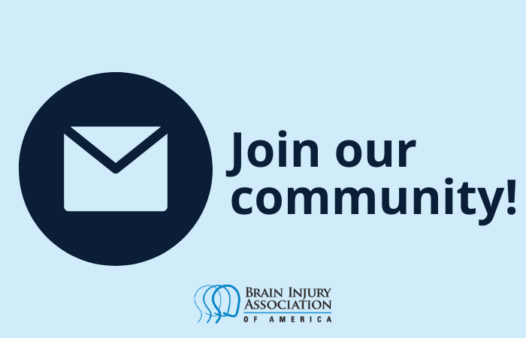July 2023 Catherine Vaughn
June 22, 2023
 As the saying goes, “We make plans, and God laughs.” This is not to say that God allowed my husband to suffer a stroke, but rather an observation that we live our lives not expecting (and rightly so) they would unexpectedly be turned upside down on a random Monday. But that is how it happens, isn’t it?
As the saying goes, “We make plans, and God laughs.” This is not to say that God allowed my husband to suffer a stroke, but rather an observation that we live our lives not expecting (and rightly so) they would unexpectedly be turned upside down on a random Monday. But that is how it happens, isn’t it?
For us, it was an ordinary weekday. After returning home from a trip, we finished our commitments, shared dinner, and hopped into bed. Less than two hours later, I was awoken to what I thought was my husband having a nightmare. Unable to speak, open his eyes, or move his left side, I knew there was no time to waste. Knowing the signs of stroke (easily memorized as F.A.S.T: Face, Arm, Speech, Time to call), I dialed 911 and was able to quickly get him the urgent help he needed. Once in the emergency room, we learned the severity of his stroke (right side ischemic with 70% affected) and the devastating news that he was not a candidate for the “clot buster” or a thrombectomy. So where did that leave us? Time would soon tell.
I’ve learned much since that fateful day in September. I became a widow, but my husband didn’t die. Weeks later, I would welcome home someone who I now needed to “get to know” all over again. My best friend is now new to me again and I was terrified. And so it began right there in the ER with the plethora of medical terms I had never heard but would quickly become part of my life. Experts educated me on rehabilitation processes and procedures like PT, OT, and Speech therapies that I would now implement to treat what was once a fully functioning body and mind. From there we began the unending processes of applying for short-term and long-term disability and understanding the long list of medications that will now manage our “new normal”. My head was spinning. So, where does a newbie like me begin? The answer – the beginning.
With this cavalcade of new responsibilities, you will quickly ask yourself, “What is the most important role I must play in my loved one’s recovery?’ In my opinion – unequivocally – it is your unwavering advocacy. Without question this is the most vulnerable time in their lives as they find themselves in a place where they may not be able to effectively articulate what they want or don’t want and where the critical protection of their privacy under the Health Insurance Portability and Accountability Act (HIPAA) is most important.
After a medical event as intense as a brain injury, your loved one’s information will be shared with countless people and institutions – from the hospital, upon admission, to the emergency room, to the doctors (and there are plenty), to the insurance company, and beyond. They will all want to play their part, and they’ll bill handsomely for their efforts in your loved one’s recovery. Protection of sensitive information at this time is critical and will require you to compartmentalize your emotions so you can stay plugged-in to the information you are being asked to share.
That said, here is my list of suggestions to protect you and your loved one while still providing the necessary information to the RIGHT people:
1. ASK QUESTIONS! The only dumb question is the one you didn’t ask.
2. Mistakes can be made. Know your loved one’s medication names and dosage. Review all of the medications in your loved one’s “MyChart” or hospital/treatment center records. Check for errors. Speak up!
3. Know who you are speaking with and what their involvement is in the care of your loved one. If you question whether they should have access to medical records, ask them to provide you with proof of their involvement.
4. When bills begin to arrive (and they will very quickly), question the charges and speak with your insurance company. Know the terms of coverage (maximum out of pocket costs, etc.).
5. The insurance company will provide you with an explanation of benefits and may have a “provider’s accepted fee” for services which caps your financial responsibility. Review them.
6. Know your loved one’s rights under HIPAA and who is entitled to ask for, secure, and disseminate their private medical records.
7. READ, READ, READ! If you have questions, call the company, the provider, the doctor’s office, or, if all else fails, contact someone you trust and utilize them to advocate on your loved one’s behalf.
8. Use the internet! Extensive information is available on credible websites that will educate you on issues as they arise.
9. Be kind to yourself. You are facing a life-changing event and it will take time to get your bearings. Don’t be afraid to ask for help or moral support. We all need it!
I hope you find this information helpful. Our collective life experiences, I believe, only benefit us if we don’t share. We are all in this together, and if our story can help you, then something positive comes from this very painful journey to recovery.

